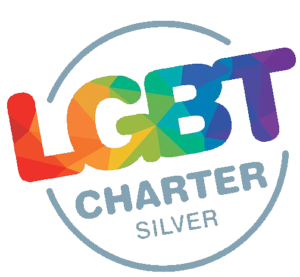Women’s Support
If you are frightened or worried about the way your partner or ex-partner is treating you, you do not have to put up with it. There are many things you can do to protect yourself and any children from further harm.
No one deserves to be abused.
Wigtownshire Women’s Aid can offer you confidential information and support.
We offer support over the phone, in our office and in the community. These are some of the ways we can provide support to you:
- One to one support, tailored to suit your individual needs
- Support, whether you choose to stay with or leave your partner
- A safe, temporary place to stay for you and any accompanying children
- Crisis support, a friendly listening ear when you need it.
- Information and choices concerning domestic abuse, such as housing options, benefits, welfare rights and legal issues
- Give you information about your rights
- Sign posting to other agencies that can help
- Safety Planning
- Group work with other women
Domestic Abuse in LGBTI communities
While the vast majority of domestic abuse is perpetuated by men against women, domestic violence is also experienced by men and within the LGBTI community.
Power and control are at the heart of domestic abuse, and gender is one of the most powerful levers that abusers use. Although heterosexual and LGBTI people may experience similar patterns of domestic abuse, there are however some specific issues that are unique to the experiences of LGBTI people, which may include:
- Threat of disclosure of sexual orientation and gender identity to family, friends, or work colleagues.
- Increased isolation because of factors like lack of family support or safety nets.
- Undermining someone’s sense of gender or sexual identity.
- Limiting or controlling access to spaces and networks relevant to coming out and coming to terms with gender and sexual identity.
- The victim may believe they ‘deserve’ the abuse because of internalised negative beliefs about themselves.
- The victim may believe that no help is available due to experienced or perceived homo/bi/ transphobia of support services and criminal justice system.
With specific reference to LGBTI partner abuse:
- Using society’s heterosexist myths about aggression and violence, abusive partners may manipulate and convince their partner that no one will believe the abuse is real.
- Abusive partner may manipulate their partner into believing that abuse is a ‘normal’ part of same-sex relationships.
- Abusive partner may threaten to call the police and claim that they are the victim.
- The abusive partner may pressure their partner to minimalise abuse to protect the image of the LGBTI community.
- If the abused partner is living in the UK on a spousal visa, abuser might take advantage of their lack of awareness about immigration law, and threaten to deport them back to their country of origin, which could pose a risk due to e.g.: anti-gay legislation.
With specific reference to trans persons:
- Withholding medication or preventing treatment needed to express victim’s gender identity (e.g. hormones, surgery).
- The abuser might refuse to use correct pronouns and prevent the abused from telling other people about their trans background or identity.
- The abuser might use derogatory names and ridicule the victims body image (body shaming).
- The abuser might convince the victim that nobody would believe them because they are transgender.
If you recognise any of these behaviours, we are here to listen.
You are not alone. Domestic abuse affects 1 in 4 lesbian, gay, bisexual and transgender people. You do not deserve to be abused and you can get help.
Wigtownshire Women’s Aid is an inclusive service and supports ALL women including women in same sex relationships and transgender women.




 Wigtownshire Women's Aid, 22 Bellevilla Road, Stranraer, DG9 8ED
Wigtownshire Women's Aid, 22 Bellevilla Road, Stranraer, DG9 8ED 01776 703104
01776 703104